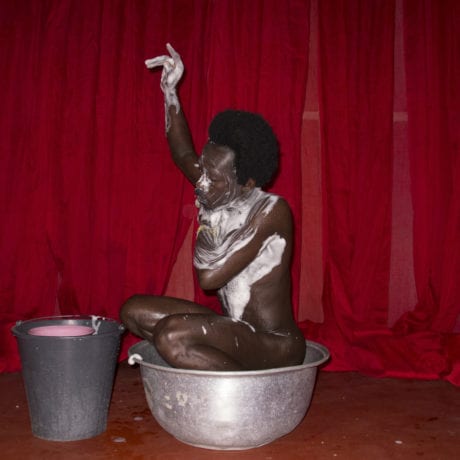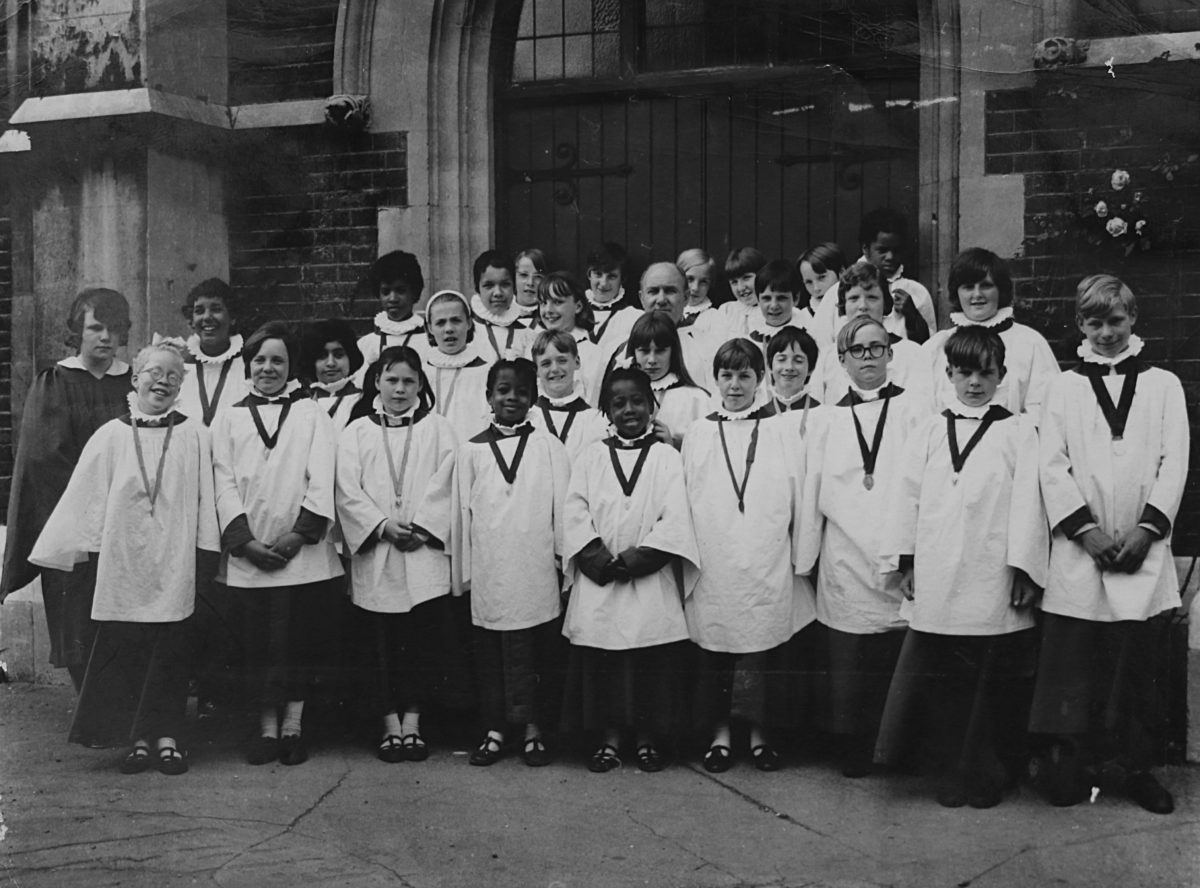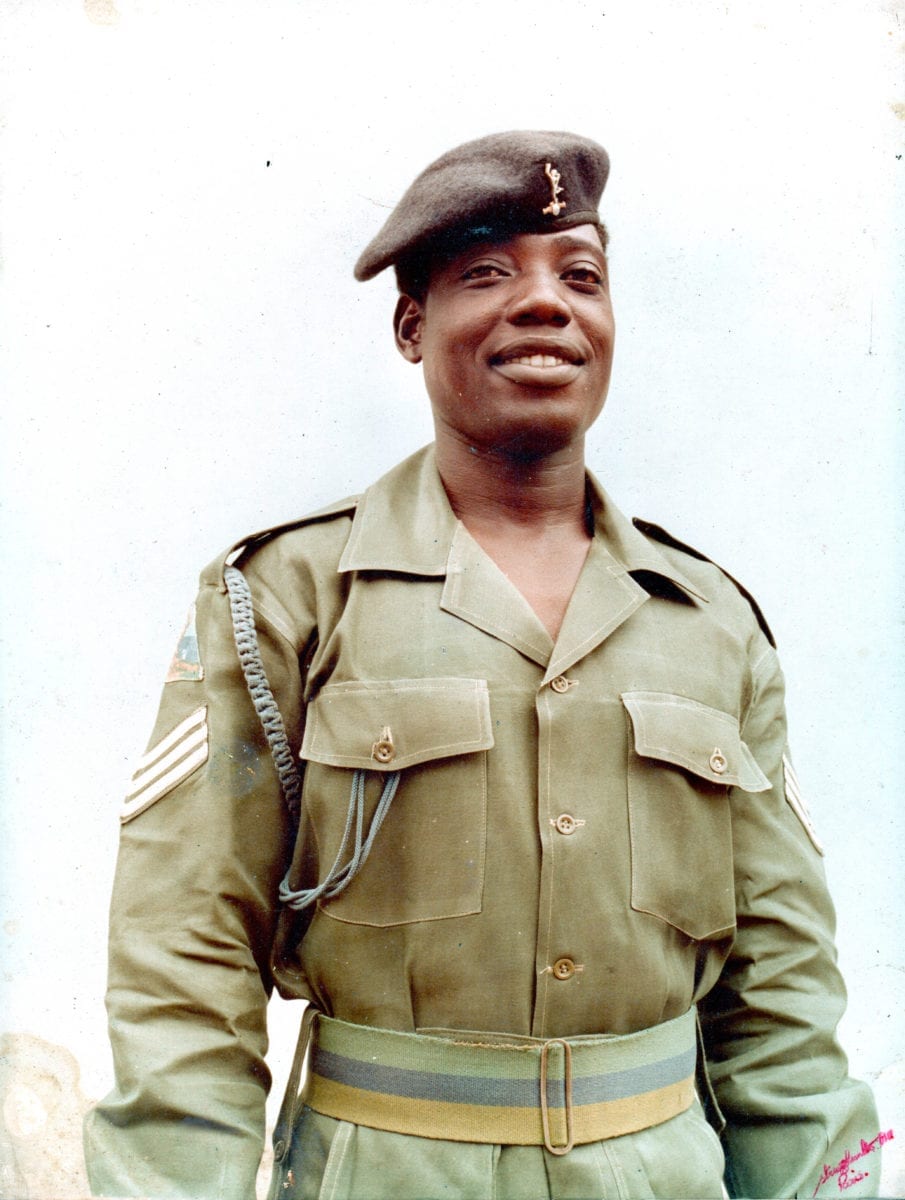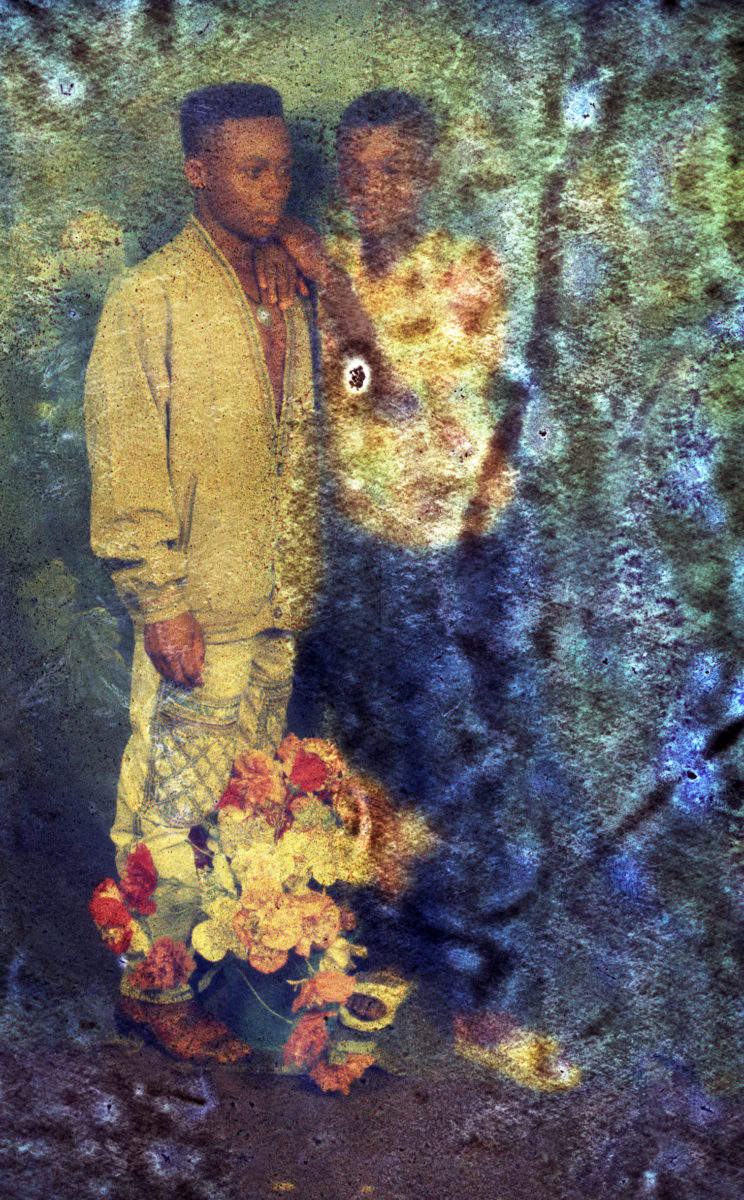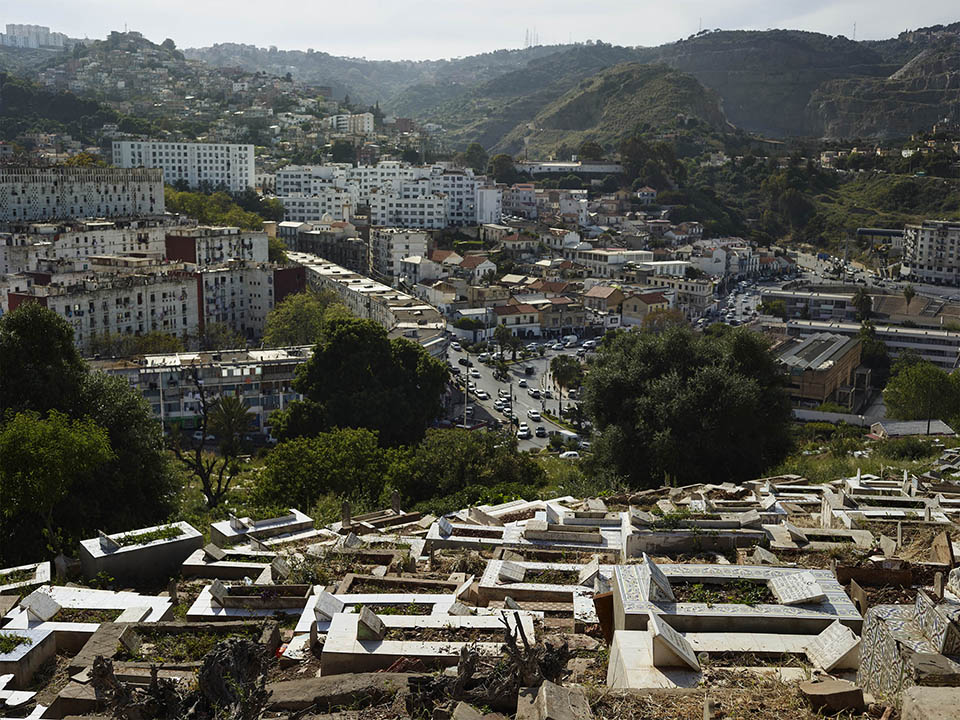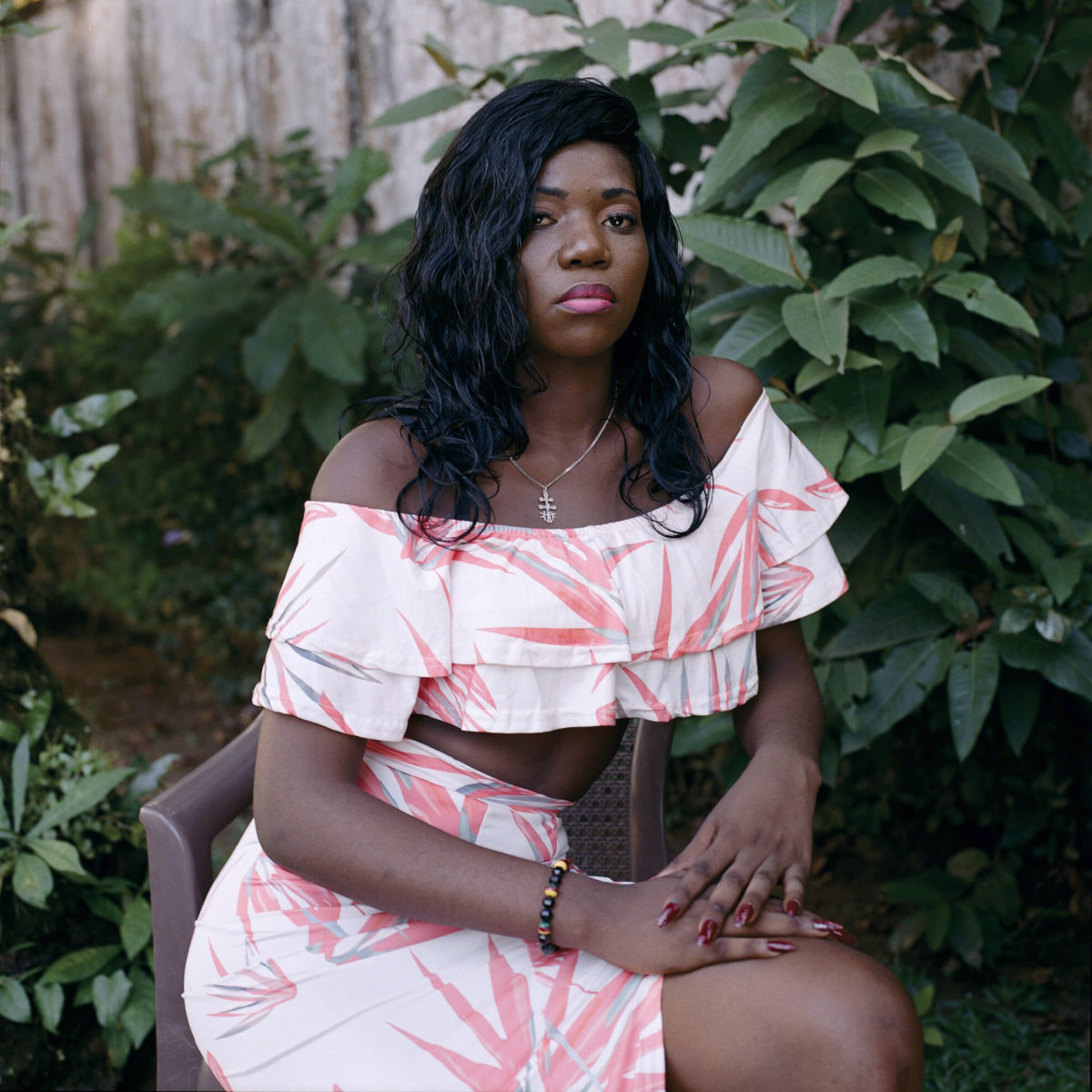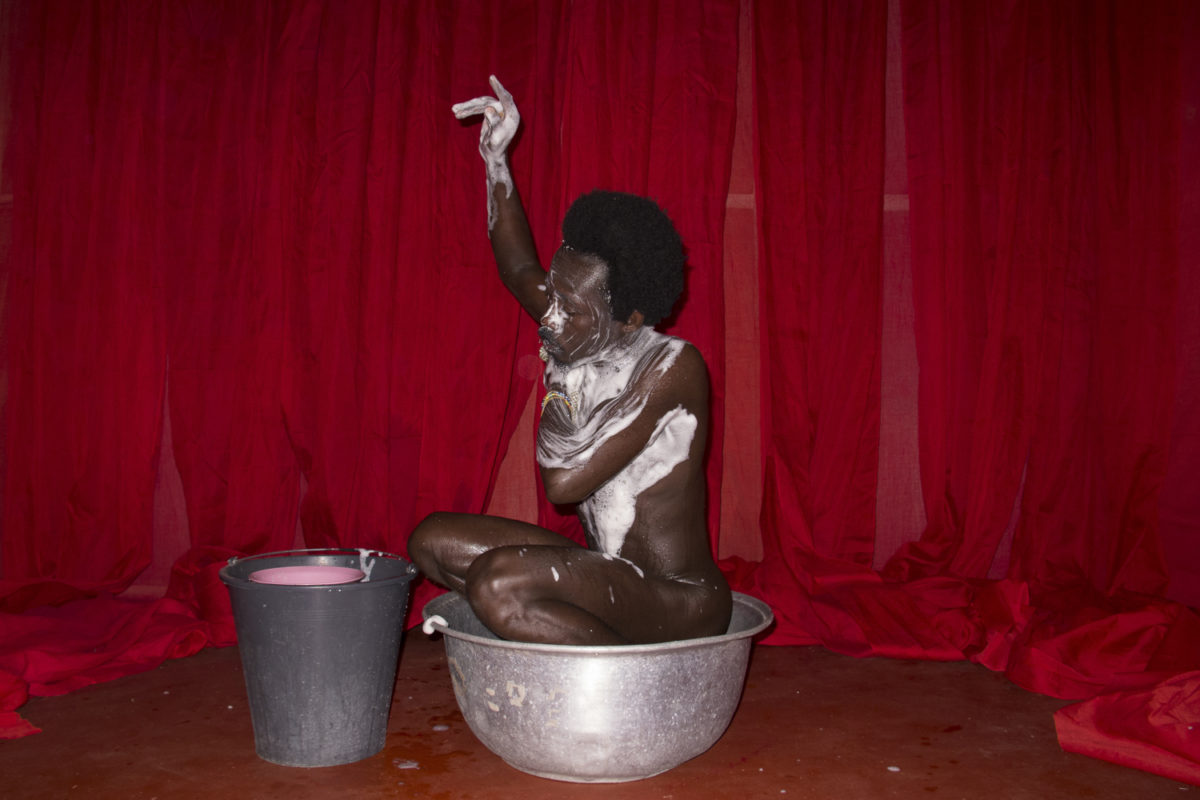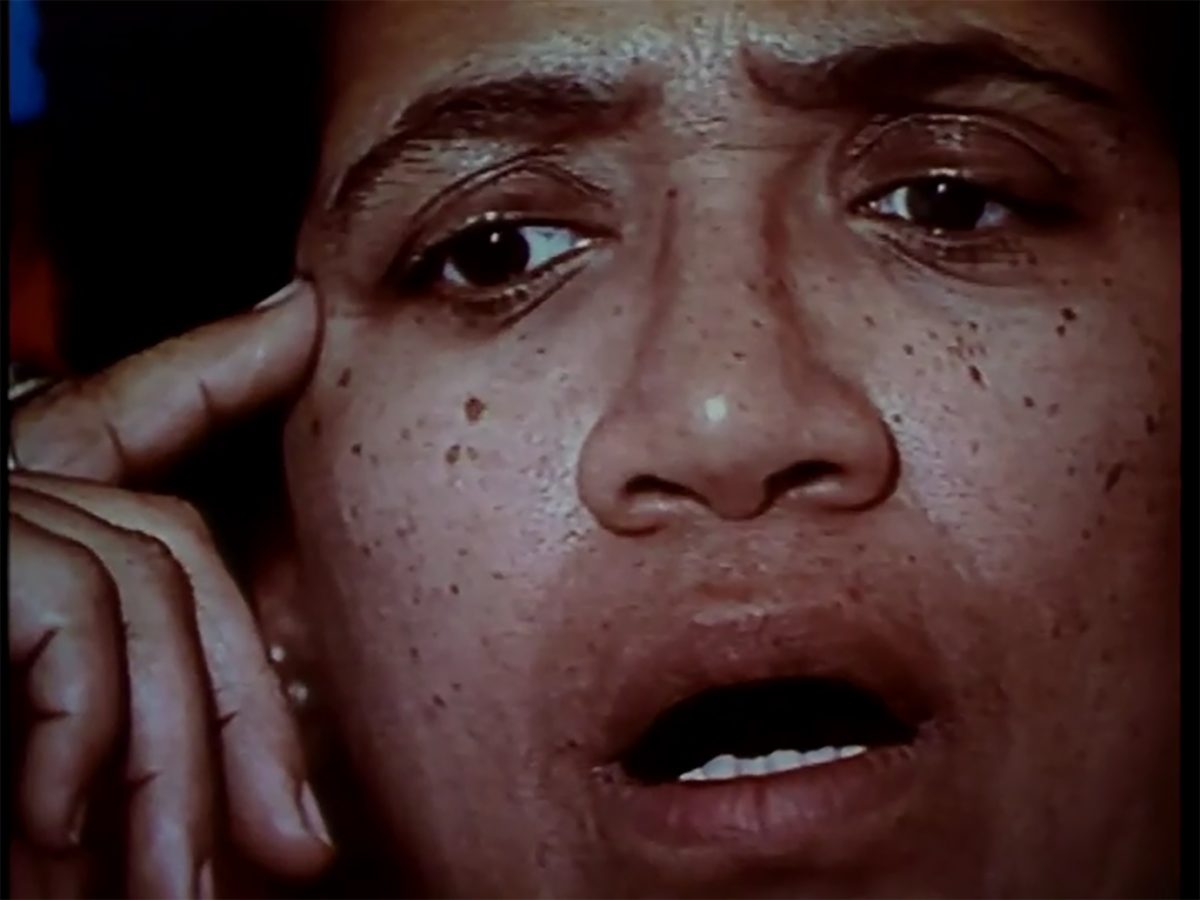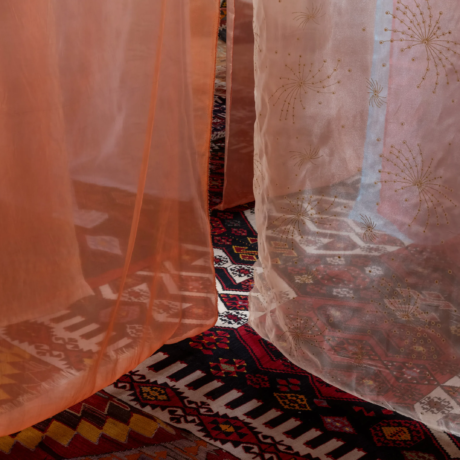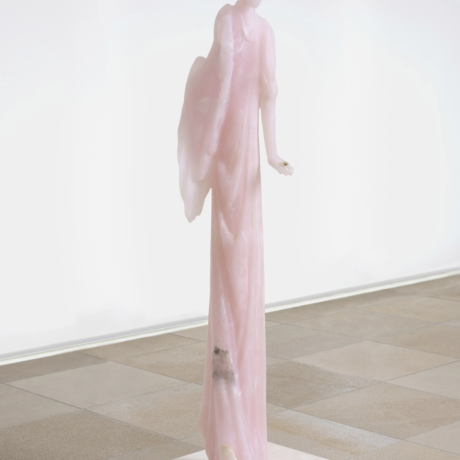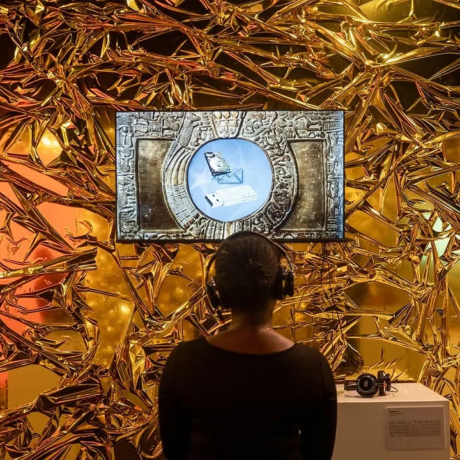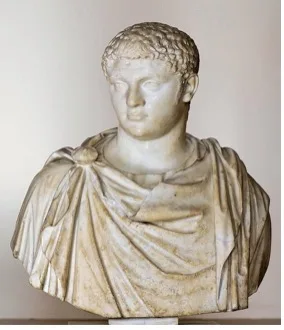For anyone who has visited bustling Lagos, a city teeming with action and enterprise, you may have heard the expression “time is gone”. “Time is gone!” an anxious businessman might shout to his driver, late for a meeting. “Time is gone!” a market vendor might urge his customers, encouraging them to go for his deal of the day, before it’s too late. Time runs fast in a city like Lagos, as with any other modern metropolis, where citizens rush about their lives, too busy to notice that time really is running away from us all. Time is an interesting proposition when it meets photography, the medium that is dependent on time, and that suspends it.
At Lagos Photo, under the guidance of four curators (invited by organizers the African Artist’s Foundation), we travel through time, into the recent past, courtesy of Lagos Studio Archives, a historical preservation project that consists of thousands of 35mm colour negatives that document Lagos studio portraiture from the 1970s to the 2000s; meanwhile Mathilde ter Heijne brings forth an entire history of anonymous women in Woman to Go, an interactive, evolving installation of postcards of women who lived between 1839 and the 1920s, and whose images were recorded as photography was first being practised, though their biographies have been long forgotten. In Michele Pearson Clarke’s All That Is Left Unsaid (2014) art is a painful memory of a person who has passed, and this deeply moving, personal film contemplates the relationship between mothers and daughters, through a prism of grief.
In Camera Lucida, Barthes notes “a paradox: the same century invented history and photography. But history is a memory fabricated according to positive formulas, a pure intellectual discourse which abolishes mythic time; and the photograph is a certain but fugitive testimony.” He continues: “…the age of the photograph is also the age of revolutions, contestations, assassinations, explosions, in short, of impatiences, of everything which denies ripening.” Time is often cruel, and it invariably lies. As Lagos Photo founder Azu Nwagbogu notes, the festival attempts to untangle “our very interrupted experience of history that is lacking continuity and ownership”.
Time’s up. The time is now.
